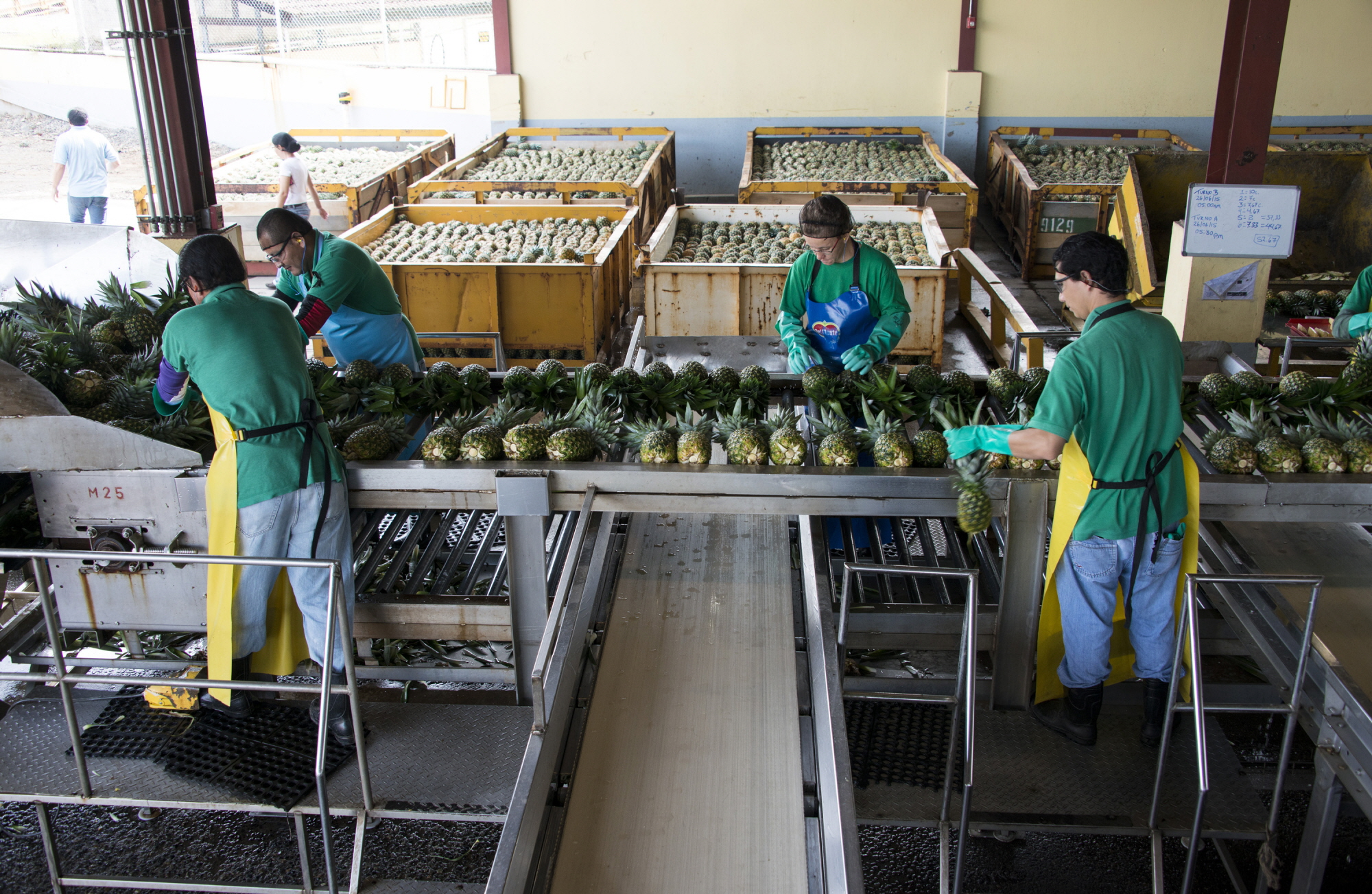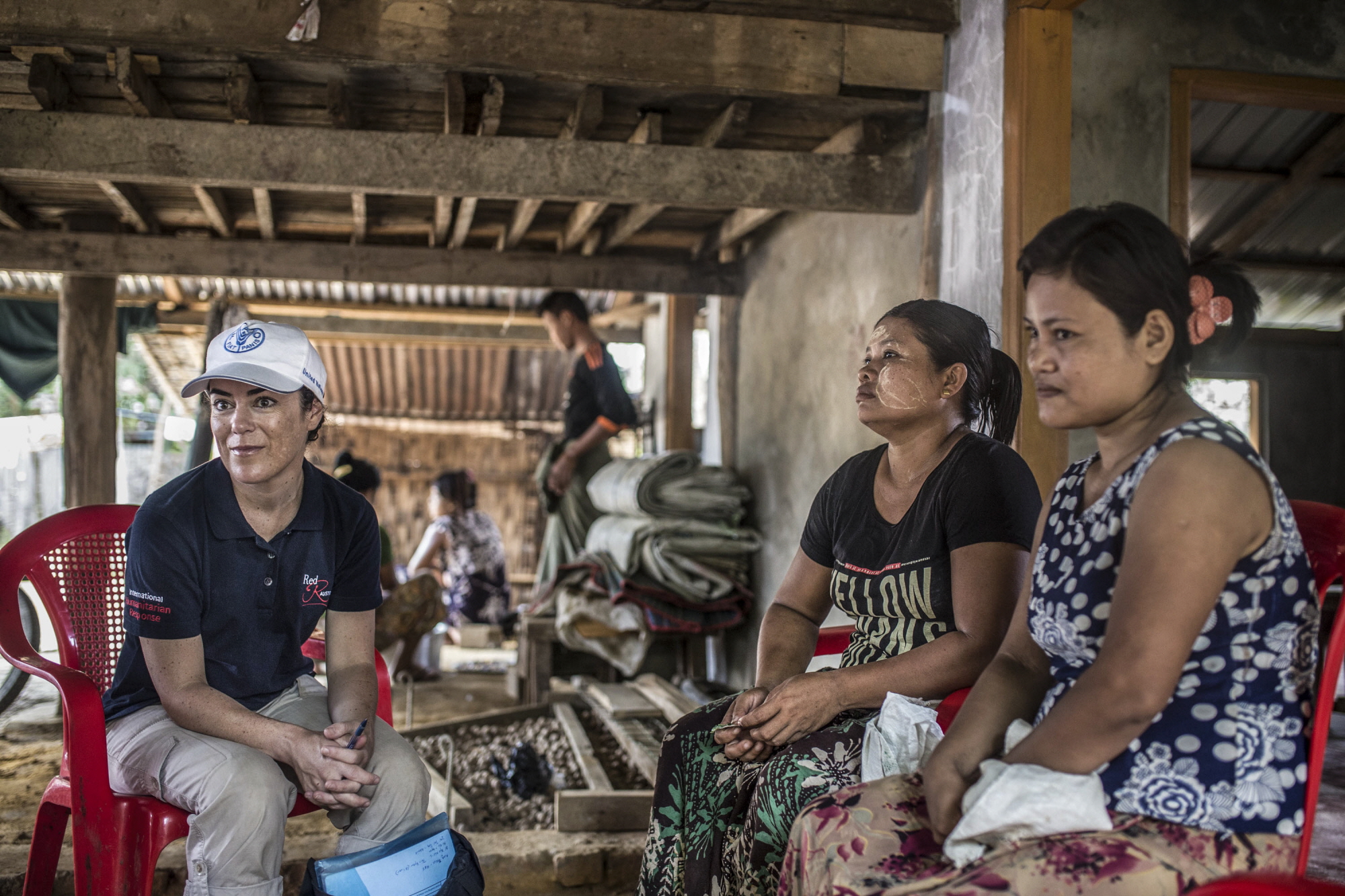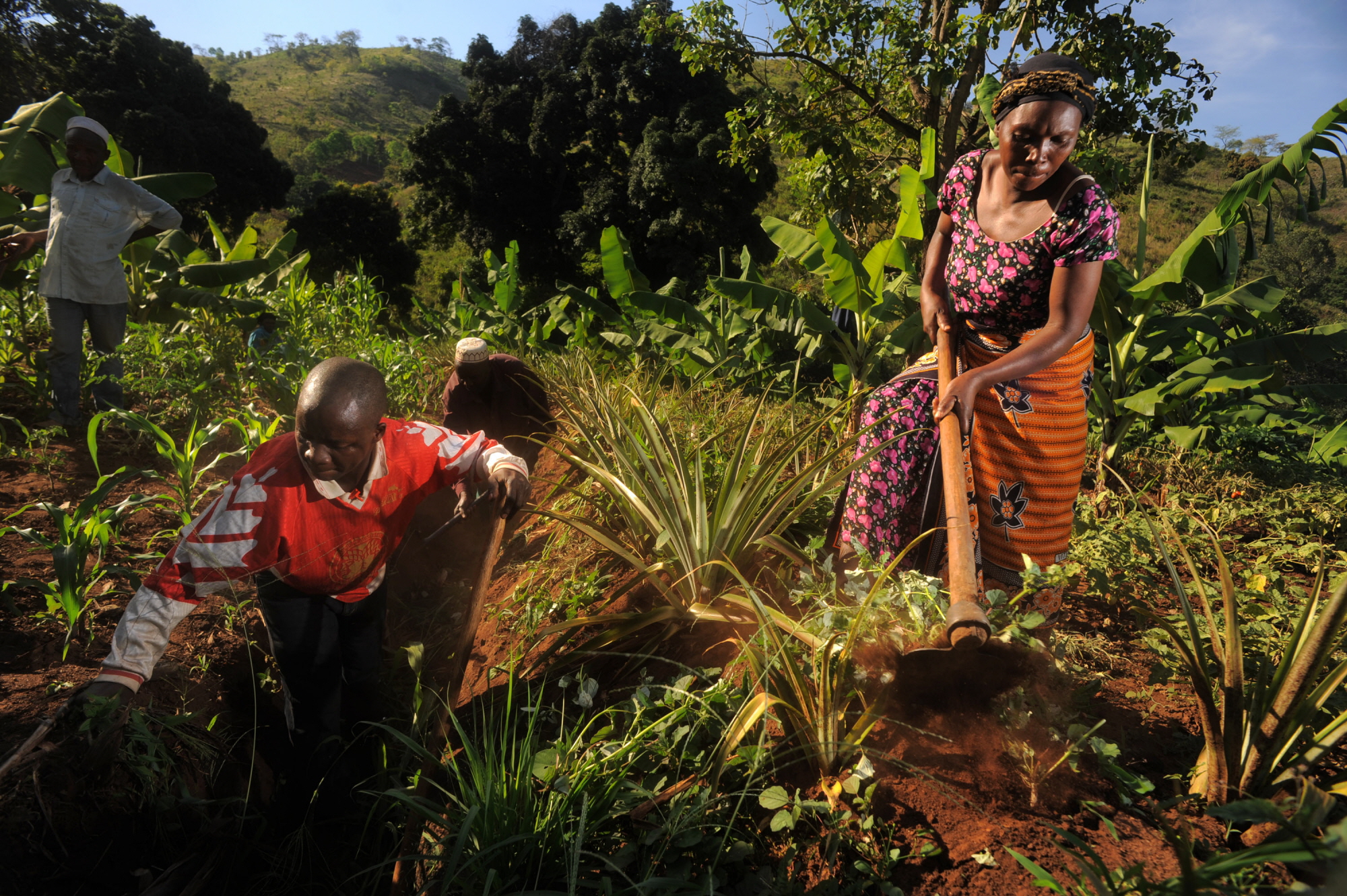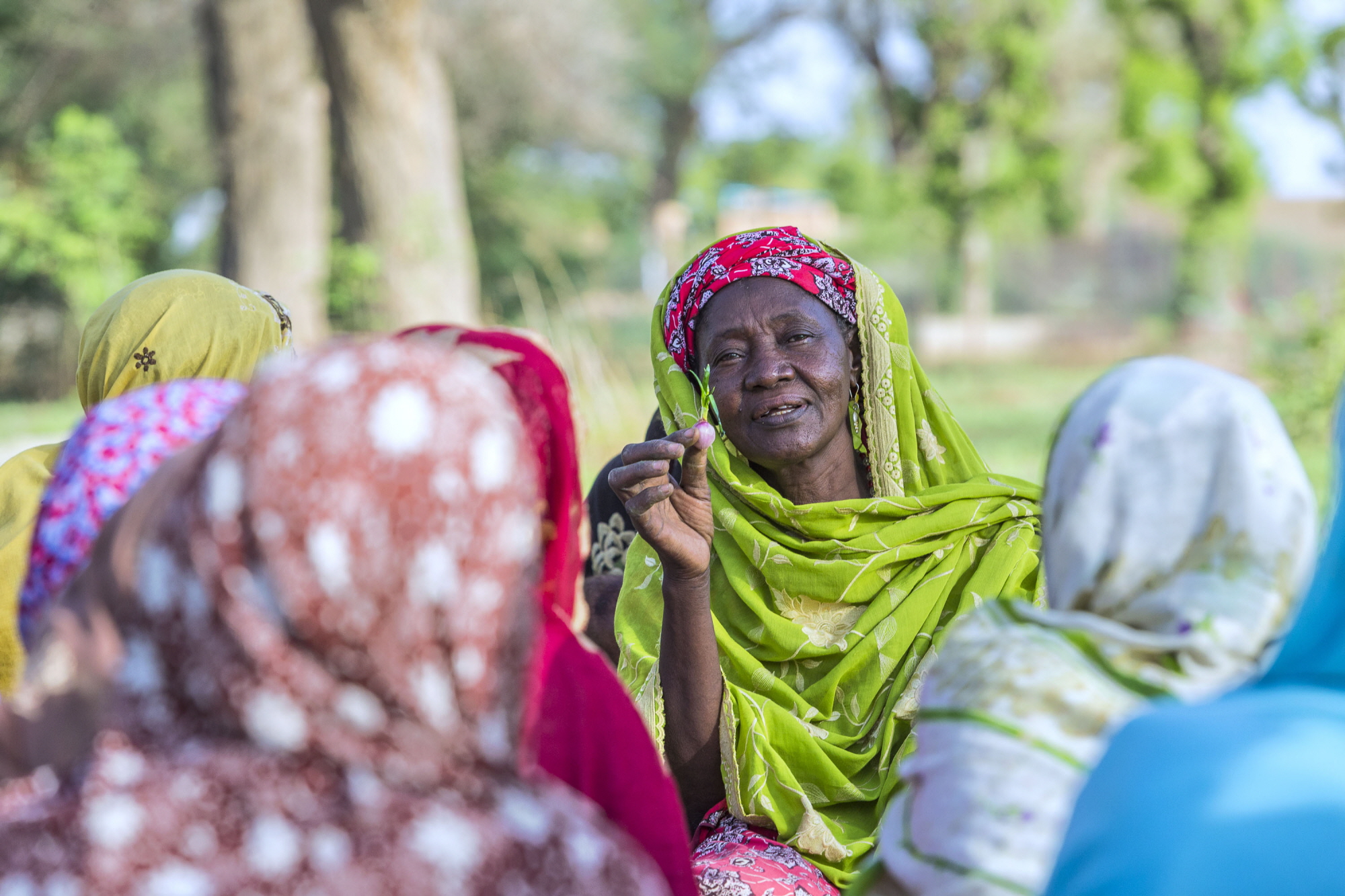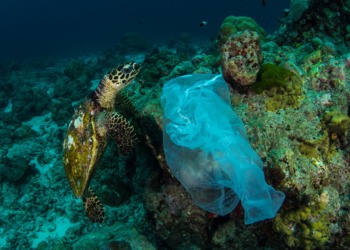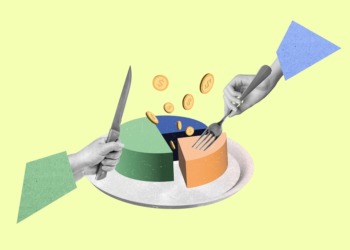How to Accelerate progress on Sustainable Development Goals by mobilizing action in agriculture and food systems
One key accelerator for progress towards the SDGs is the agriculture and food systems cluster. Action in agriculture and related sectors has a strong direct effect on multiple SDGs, including on eradicating poverty (SDG 1), ending hunger (SDG 2), climate change (SDG 13), living on land and water (SDG 14 and 15), and others. Current segmented governance arrangements in the agricultural sectors do not allow taking full advantage of the key role of food and agriculture for the SDGs. Three simple steps help mobilizing effective action, accelerating progress on a range of SDGs.
Engaging stakeholders in dialogue on the contribution of agriculture and food systems to the SDGs, at various levels
Success in transforming agriculture depends on mobilizing other people. The inter-linkages of modern agricultural and food production systems make it impossible for any single sectoral government agency to effectively influence the many actors who ultimately need to change their actions, including producers, processing bodies and traders, and consumers.
In the photo: 28 April 2016, Maungdaw, Myanmar – A representative of FAO and two villagers during an interview in Taung Ywar Village, Maungdaw township, Rakhine State. FAO project SRO/MYA/502/CHA purpose is trying to distribute 200 piglets to 1600 beneficiaries of 51 villages in Buthidaung and Maungdaw Townships in Rakhine State. Credit: FAO
Engaging and deepening dialogue with stakeholders beyond “traditional” partners. What changes with the SDGs is that these are politically highly relevant, ambitious and comprehensive goals to which countries have committed themselves. Unlike in the past, agriculture and natural resources are recognized as a core “multiplier” for many countries. To live up to the ambition, awareness and commitment across agriculture and food sectors to the SDGs needs to grow, and fast. It also requires breaking silos across “traditional” sectoral boundaries such as crop, livestock, forestry or fisheries and related value chains. Dialogues need to emphasize the involvement of the private sector. Starting a more substantive dialogue are many and can be done through technical round table discussions, or through on-going policy or planning processes at different levels.
Building better understanding. What is needed is beginning to engage in dialogue “beyond the comfort zone” and with potential future partners. Governments, farmer or business groups and civil society often have limited experience in and capacities for joint dialogue towards more or less common goals. Quite some investment is needed for informal ad-hoc exchanges to learn about the different viewpoints on promoting sustainability in agriculture. While this takes time and energy it pays off handsomely if it builds more shared understanding on areas of joint interest and a basic level of trust.
Framing sustainability issues and identifying priority areas for engagement
Aiming at transformational change. Impact at scale can only be achieved if key stakeholders on a specific cross-sectoral sustainability issue in agriculture or food systems pull in the same direction, with more coherent decisions and actions. This requires that a small number of powerful and/or strongly committed actors are interacting to mobilize action that produces substantial impact, providing more sustainable solutions.
Establishing a common basis: vision and principles. The foundation for change is laid if key stakeholders can agree on commonly shared vision (e.g. on achieving key SDG targets), guidance on the strategic direction and some principles, reflecting shared values and beliefs. The five principles of sustainable food and agriculture endorsed by the Member States of the Food and Agriculture Organization of the United Nations is a good starting point.
 In the photo: 30 October 2013, KIROKA, TANZANIA – Farmers clear weeds from a contour ridge and trench in Kiroka on October 30. The trenches and ridges retain water and prevent soil erosion during rains. An FAO project to strengthen capacity of farms for climate change is underway in Kiroka, Tanzania. Credit: FAO
In the photo: 30 October 2013, KIROKA, TANZANIA – Farmers clear weeds from a contour ridge and trench in Kiroka on October 30. The trenches and ridges retain water and prevent soil erosion during rains. An FAO project to strengthen capacity of farms for climate change is underway in Kiroka, Tanzania. Credit: FAO
Finding and agreeing on opportunities to pursue. While perspectives, interests and power are diverse, there are areas where some groups can gain from better collaboration without others necessarily losing. This can e.g. include opportunities for farmers to diversifying to high-value crops, creating income and jobs, or saving costs for water or pesticides through new more environmentally friendly technology, or better ways of providing fresh and nutrition-rich food to people living in cities. Finding concrete entry points for collaboration is particularly important with groups with whom government has not yet had partnership-based exchanges.
Identifying and agreeing on key contentious sustainability challenges to tackle. Sustainability issues tend to be fairly well known amongst stakeholders. They are often disputed and positions entrenched. The SDGs can help in reaching general agreements on broad issues and in identifying some concrete challenges that can be meaningfully addressed, including e.g. on restoring degraded land back to more productive purposes. To what extent the SDGs can help building momentum for negotiating a change depends on the ability to making a better case and forming new coalitions in favour of reform – or of pilots to test new approaches.
Forming new partnerships to achieve the SDGs, making commitments and following through
Forming new partnerships is imperative to achieving the SDGs. The SDGs provide an excellent opportunity to pro-actively explore new ways of collaboration. In most cases some government, private sector entities and civil society groups find common interest in working towards a more sustainable future, e.g. on more efficient and less wasteful food processing and transport. At the same time it is an opportunity for adapting and expanding the role of government bodies from focusing on command-and-control approaches, to acting as facilitator and enabler of actions by others.
In the photo: 29 June 2017, Gafati, Niger – Mehao Saley 60years, in one of her women support group meetings at the ASTF support horticulture farm in Gafati in the Zinder region of Niger is one of the communities ASTF has supported in implementing the 3N. Credit: FAO
Making commitments to goals and actions, promoting shared investments, responsibilities and accountability. Progress on the SDGs requires concrete joint commitments of governments, private sector and civil society that go beyond general intentions. The SDGs come with a set of indicators that allow setting specific targets and devising concrete plans of action that can guide and streamline investments of different public and private bodies based on shared but differentiated responsibilities. And they allow measuring progress against targets, strengthening accountability of all partners.
Starting with existing best practice, building capacity to improve and up-scale. The process of changing roles and behaviour between different stakeholders is socially, politically and technically complex. Many operational decisions need to be made at different levels to make them happen, at local and other levels. The key point here is to start with some concrete experiences, e.g. in using agroforestry to diversifying local livelihoods while addressing degradation and climate issues. Farmer field schools or similar peer-to-peer networks can be used to sharing experiences and supporting up-scaling.
The long view: maintaining dialogue, learning from experience and adjusting actions to reach SDGs by 2030.
Adapting governance arrangements needs persistence and flexibility. Implementing the SDGs is prone to uneven progress and will include set-backs and failures, also in agriculture and food systems. It is useful to explore different ways to tackle topics, learn fast and adapt plans towards more effective actions, amending specific governance arrangements and incentives. Learning jointly and improving effectiveness of actions is much easier if a mechanism is put in place that allows dialogue amongst stakeholders, which also helps maintaining momentum and commitment to reach SDG targets by 2030.


